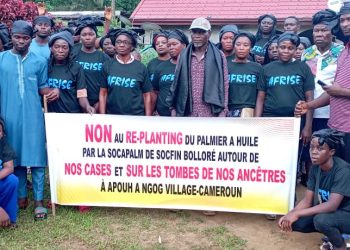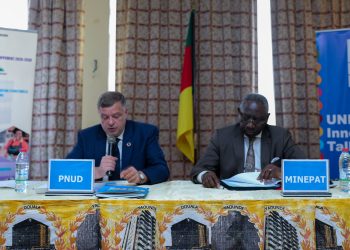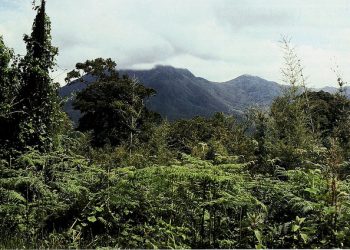By Uyapo Majahana
A collaborative inclusion of indigenous knowledge systems with modern science, as well as creative participation of women and and youth have been fingered as key in efforts to restore Africa’s drylands by experts.
Drylands generally refer to arid, semi-arid and dry sub-humid areas. According to the Food and Agriculture Organization of the United Nations (FAO), almost half of Africa’s surface is categorized as drylands and is home to more than 525 million people whose livelihoods are dependent on them in Africa.
Therefore restoring Africa’s drylands is pivotal to securing food and nutritional security, and contributing to the realization of the Sustainable Development Goals (SDGs).
Speaking during the maiden digital Global Landscape Forum (GLF) conference held between June 2nd and 3rd, experts said women, who are the repositories of local knowledge, should be involved more in the restoration of critical sectors like gene banks.
Agnes Kalibata, United Nations Special Envoy said women have for a long time played a crucial role of acting as gene banks even without being aware of the specific scientific nuances of gene banks.
“Food is culture, and women have demonstrated that they understand the genetic potential and value of conserving plants in their everyday work in the farming system. Crops like millet, cowpeas and beans are called women crops in different parts of Africa because while most do not ascribe much value to them, they are very valuable to women because they provide important nutrients to their children and families,” she said.
Other experts weighed in and said while gene banks are full of untapped potential for restoring Africa’s drylands because of the wealth of crop diversity they hold, challenges like being under-resourced should make restoration efforts pay a lot more attention in advancing women’s involvement and incorporating local knowledge.
Dedicated Grant Mechanism (DGM) global technical director and indigenous peoples champion Johnson Cerda said the relevance of indigenous knowledge systems cannot be ignored since it is prevalent in different spheres like climate change mitigation, adaptation as well as in medicine during this COVID-19 pandemic.
“Although the world has seen a lot of contributions from indigenous communities in recent times, a lot of those contributions have been kept there in the communities, with minimal efforts to promote them. With DGM, we are supporting existing local community-based organisations all over the world by providing the capacity they need to achieve their goals faster and more efficiently.
“We are not reinventing anything. If we recover the knowledge we have in the communities, then we would be better able to connect and engage in the climate change discourse meaningfully. Community knowledge sharing is not only important within or across regions, but globally as well,” he said.
Hon. Adjany Costa, an ethno-conservationist and advisor for Environmental Affairs to the President of the Republic of Angola highlighted the importance of decolonizing conservation for the successful implementation of Africa’s restoration initiatives.
“Throughout most of history, conservation was forced on [Africans] with a picture painted about what it looks like elsewhere, and steps on how to achieve it prescribed. Communities were always put aside because they had different perspectives.
“But now we have figured out that it is important to listen, learn and have empathy for local communities’ definitions and concepts of landscapes. Copying and pasting models that are designed in the western world will not be successful in Africa because there is nothing like a one-size-fits-all solution since the economic, social and cultural dynamics are worlds apart.
“We need to take charge and empower ourselves to be able to question and adapt into our own reality what we are being taught and forced to apply,” she said.
While conserving and preserving different indigenous food crops is one side of the story in restoration efforts, another side involves the complexity surrounding canvassing for behavioural and attitudinal changes among Africans towards producing and consuming the indigenous ‘forgotten’ food crops.
Selassie Atadika, chef and founder of Midunu said although we cannot avoid the problems associated with the decimation of local agriculture through colonialism and the proliferation of cash crops that annihilated indigenous food value chains, there is still hope.
“A lot of producers are driven by forex and so they are looking to produce export crops while consumers are also in a way brainwashed to consider imported food to be superior delicacies that justify more money to be spent on them while indigenous food is considered to be poor people’s food.
“But that has to change, and I have already begun working on promoting this local food in my restaurants and have been talking with other chefs to encourage their patrons to try these foods at their homes and experiment with different recipes,” she said.
Atadika says a project involving Accra and Helzberg currently underway aiming to bolster biodiversity and restoration plans in Ghana looks at landscaping in flood-prone areas using agriculture.
“The project involves using different varieties of indigenous rice as a landscape not only to absorb water but also to create a way for us to put biodiversity in the front. Putting agriculture and functionality brings new stakeholders into the conversation. The project will also have economic relevance as the seeds are taken from the gene banks, and brought back to life so that we can create an economy around them. Also of importance is how to ensure community participation and making the project everyone’s business,” she said.
She also highlighted the importance of working near gene banks to help curb the loss of indigenous knowledge through rural to urban migration.
Susan Bragdon, policy advisor at Oxfarm and international lawyer and natural resource ecologist stressed the importance of calibrating trade policies and intellectual property policies so that they align with the development and safeguarding of smallholder farmers’ pursuits of agrobiodiversity, which in turn help in drylands restoration efforts.
“A lot of our policies are driving us towards an undesirable direction. Policies like free trade have resulted in import dependency in Africa. We need to see many private actors supporting the sector and creativity has to be applied in how the public sector can support them as well,” she said.
Considering the creative capacities of the youth, their sense of urgency and their thriving population which is expected to rise exponentially in the coming years, young people in Africa were pinpointed to be a crucial piece in the puzzle of Africa’s drylands restoration efforts by several experts.
In an interesting exchange in one of the sessions of the conference, Cinderella Ndlovu, the director and founder of Green Hut Trust questioned the older generation’s assumed wisdom since they are leaving the planet worse-off than they found it.
“But as a young person who has never experienced the so-called good old days. I am failing to see a reflection of this wisdom and experience possessed by the older generation. I feel like they have really messed up.
“Young people are ready and want to make a difference by participating. But we always hear of capacity building when we have a huge capacity in our youth. We need to be speaking of capacity mobilization and getting young people involved and interested through building hope, options, equity and jobs in an inclusive manner.”
Tony Simonds, director general at World Agroforestry and executive director at CIFOR-ICRAF with over 30 years of experience in agriculture and forestry in over 50 countries had to take one for the older generation club. He conceded that a combination of arrogance, greed, ignorance and denial had got the world where it is today.
“We thought we could tame nature, extract the value we wanted from nature at our will. We thought it was a free for all, when it was a cost for all. Of course, we respect the urgency of the energy of the youth, but we cannot fix complex problems like ecosystems overnight. Even in a decade, we will not be able to restore all of Africa’s drylands, but it is a good place to start.
“Now we need to leverage Africa’s natural capital as well as the social capital of the youth. Now we have new challenges and we need new thinking and new plans, and so we have to involve the youth in this. After all, young people outnumber older people in Africa by 10:1,” said Simons.
In a role reversal twist of the exchange, Ndlovu was asked to map a way as if she belonged to the older generation’s camp.
“We need to join forces instead of blaming each other’s weaknesses,” she said.
“The youth’s energy and sense of urgency combined with the patience and experience of the older generation has so much potential to accelerate the paradigm shift that we urgently need not only as the African continent, but as a global society,” Ndlovu concluded.
According to the United Nations, people aged 15 to 24 years old represent nearly 20 percent of Africa’s population. By 2030, it is expected that the youth population in Africa will reach 1.3 billion. With a median age of 19.7, Africa’s diverse population is much younger than that of any other continent.
Also during this GLF conference aimed at leveraging the evidence to build partnerships, spread innovative propositions and generate support to make the UN Decade on Ecosystem Restoration a success, musician and climate change activist Okyeame Kwame shared some pointers about how music can and has been used to reach out to local communities in Ghana.
“Music plays an integral part in the lives of people in communities. In one campaign, we embedded climate issues in our music and we were delighted to see people leaving their homes to come to enjoy the music. Within a short space of time, the people had internalized the messages and were already practicing good farming practices. Infused with humour and local languages the project was a success.
“When I realised the amount of impact I had in the 52 communities I was involved in, I now want to replicate this idea by roping in 20 celebrities so that the messaging goes even further. Under the campaign dubbed Celebrities Against Climate Change, we want to reach people at the grassroots level who listen to our music, watch our movies and consider us to be role models. With continued support from financial institutions like the World Bank, we believe we can have a lot of impacts since we also have millions of followers on social media,” Kwame said.
The Decade calls on the international community, civil society, businesses, politicians, and individuals to prevent, halt and reverse the degradation of ecosystems worldwide. Africa is taking up the challenge and aims to restore at least 100 million hectares of land by 2030.








